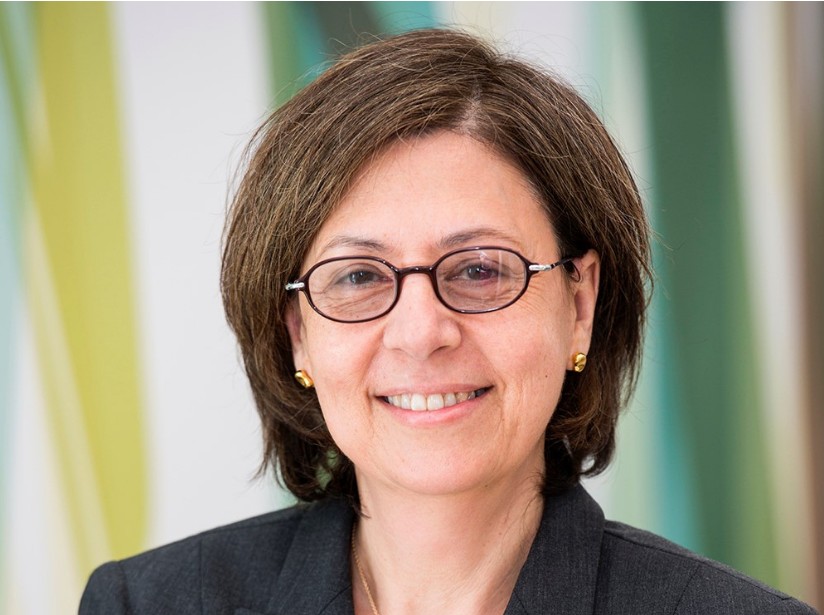Question
verb
- to ask a question of or about
- to interrogate intensely; syn. cross-examine
- doubt; dispute
- to subject to analysis; syn. examine
We are talking about the verb here, the act of questioning, and maybe we should even say the art of questioning. And let’s start with a question: Why think about questioning?
“Question everything,” said Albert Einstein. He went further to say, “The important thing is not to stop questioning. Curiosity has its own reason for existence. One cannot help but be in awe when he contemplates the mysteries of eternity, of life, of the marvelous structure of reality. It is enough if one tries merely to comprehend a little of this mystery each day.”
OK, maybe life’s mysteries are a little too much for the average day. Let’s look at something more practical. Dale Carnegie has, for about 85 years, been advising people to “Be a good listener. Ask questions the other person will enjoy answering.”
Ah, so questioning is about listening. Now we’re getting somewhere. Questions are the primary tool by which we grow to understand things – whether we are learning complex subjects or simply getting to know a new person over coffee. Yet questioning is on the decline. I’d like to question why that is.
Some people are natural questioners. Curiosity and emotional intelligence come naturally to them and they find it easy to phrase the right question at the right time. But most people struggle, for a variety of reasons. Sometimes we are too wrapped up in our own heads to think to ask what’s in someone else’s. Sometimes we actually don’t care. Sometimes we think we already know everything. And of course, one of the biggies, we are afraid of looking stupid or ignorant.
The Harvard Business School ran some tests and published results in a Harvard Business Review article. They organized a speed-dating event, during which some of the participants were told to ask a lot of questions and some were told to ask very few. Which ones do you think had the highest incidence of date requests? Of course, the questioners.
Asking questions shows we are interested, and those we interact with want to feel interesting. In fact, according to the HBS article, the most common complaint about any given conversation, such as an interview, a date or a meeting, is “I can’t believe s/he didn’t ask me any questions!”
In this age of social media, fake news, and ever-increasing social, technological and geo-political complexity, questioning is more important than ever. It’s a skill eminently worth learning. And the good news is it can be learned just like any other skill. The more you do it the better you get at it.
But how do we take the first step? If your problem with asking questions is ego or apathy, you’re probably not even reading this. You may even unwittingly be engaging in a special case of making statements disguised as questions for the purpose of making your own point. You know what I’m talking about. Don’t be that guy!
But if your problem is just fear or uncertainty, there are ways to handle it. I can’t tell you anything that will make the fear go away, but I can tell you that you can choose to ignore the feelings of fear and ask your questions anyway. One of my favorite questions comes from a book whose title is a question. The book is “Who Moved My Cheese?” And the question is, “What would you do if you weren’t afraid?”
Imagine the power of coming away from an interaction with a full and complete understanding of the little universe you just encountered. No lingering uncertainties, just the knowledge that you made the most of the learning experience and the confidence of now having that knowledge on tap.
To spend a minute looking at the questions people do ask, where better to turn than Google? The most frequently asked questions on Google are, I kid you not, in this order:
- When are the NBA playoffs?
- What is my IP address?
- Where’s my refund?
- What is love?
Fascinating. I have a lot of questions about that!
A theory known as the Dunning Kruger Effect (look it up for a mind-blowing experience) essentially says that the more we question the more we learn, and the more we learn the more aware we become of how little we really know in the scheme of things, and that in turn makes us question more.
I will hammer the point home with the words of a few great thinkers:
“What people think of as the moment of discovery is really the discovery of the question.” –Jonas Salk
“Computers are useless. They can only give you answers.” –Pablo Picasso
“We thought we had the answers. It was the questions we had wrong.” –Bono
OK, you can argue about whether Bono qualifies here, but you get the idea. And if you don’t, ask someone. Even Google! Maybe together we can knock the NBA playoffs off the top of the list of the world’s most burning questions.
Want to continue the conversation? Or, better yet, is there a question you’d like to ask me? You can email me at robbin@capespace.com – I’d love to hear from you!

